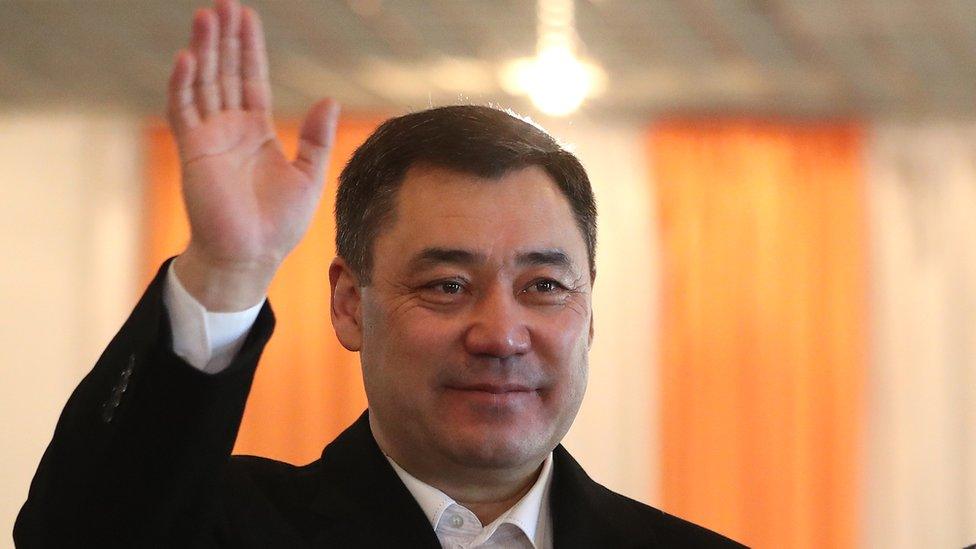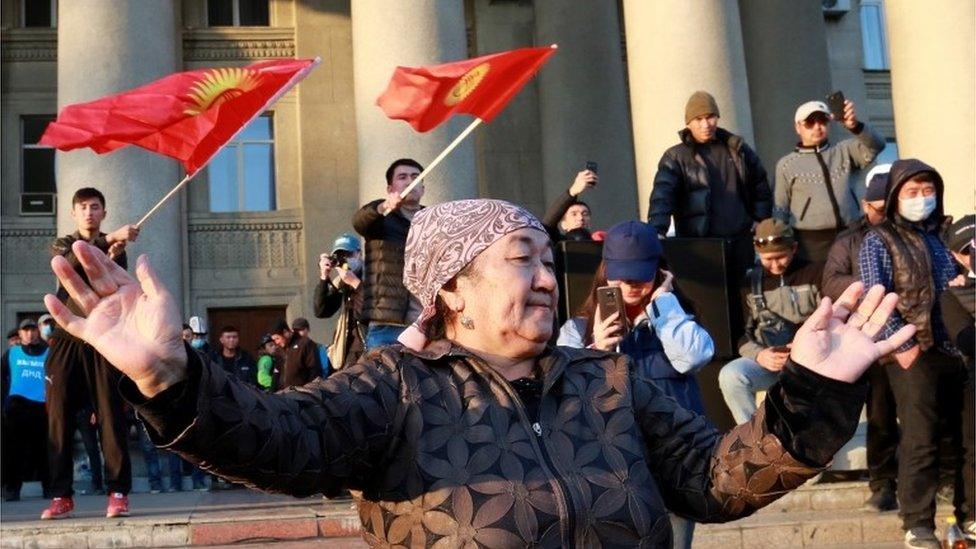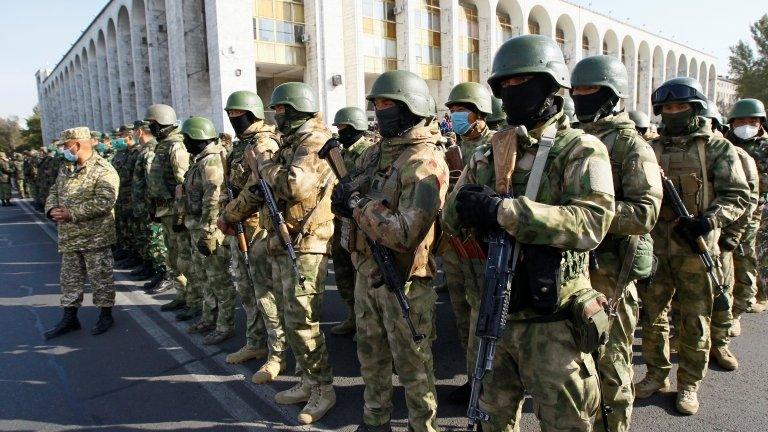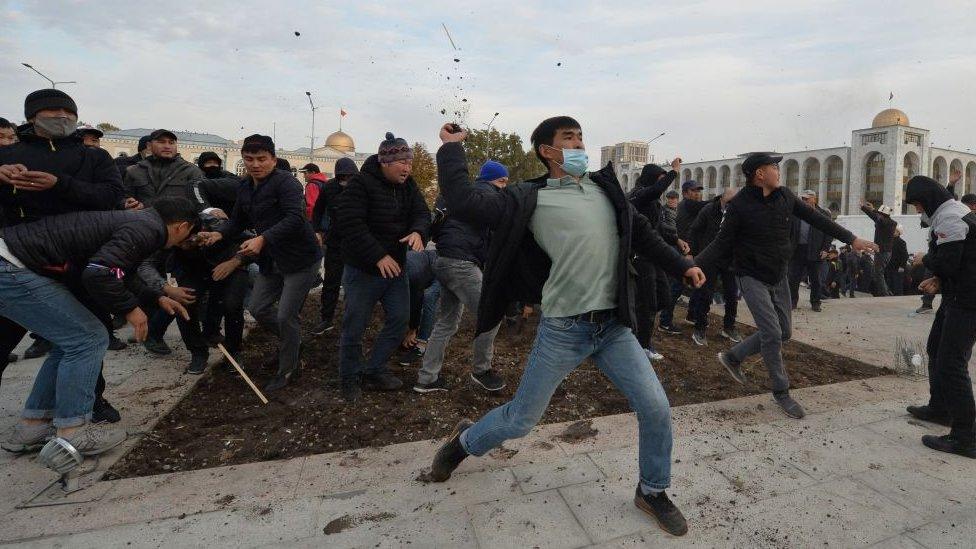Kyrgyzstan election: Sadyr Japarov wins presidency with landslide
- Published

Mr Japarov said corruption had "taken root in our country in almost every area of our life"
The frontrunner in Kyrgyzstan's presidential election, Sadyr Japarov, has won by a landslide, official results show.
The Central Election Commission said Mr Japarov had won 79% of votes cast.
Mr Japarov, who served time in jail for taking a rival hostage, will also have sweeping new presidential powers after voters by a similar margin opted to amend the constitution in a referendum.
Kyrgyzstan has been in crisis since parliamentary elections last October.
The results of those elections were disputed, leading to protests and the resignation of then-President Sooronbay Jeenbekov.
In a victory speech at his campaign headquarters in the capital Bishkek on Sunday, Mr Japarov promised to rule the country with an open government free of corruption.
"We will not repeat the mistakes of the previous government," he said. "Over the past 30 years, corruption has taken root in our country in almost every area of our life - from now on, we will not tolerate such outrageousness."
He also said he would aim to "rectify" Kyrgyzstan's economic issues "within three to five years". The country has seen surging unemployment in recent years, forcing many young people to look abroad for work.

More on Kyrgyzstan and the political unrest there
Demonstrators storm a government complex in Bishkek

In a referendum also held on Sunday, voters opted for a presidential system that will give Mr Japarov greater powers when a new constitution is passed - possibly later this year.
"Once the new constitution is adopted, we will have political reforms in the country. There will be a new structure of government," he said.
International observers said the election lacked a level playing field because Mr Japarov had far greater financial and organisational resources.
But the Organisation for Security and Co-operation in Europe stressed that the election and parallel referendum on Kyrgyzstan's system of governance had both been well-run overall, and had generally respected fundamental freedoms.
Mr Japarov, who spent four years in exile, was in prison until October last year for taking a rival politician hostage. He was freed by his supporters, who had taken to the streets after a parliamentary election that was widely seen as rigged.
Subsequent protests forced electoral officials to annul the results and ended up toppling the government.
Mr Jeenbekov became the third president of the Central Asian state, which gained independence from the Soviet Union in 1991, to be ousted by a popular uprising since 2005.

Kyrgyzstan - five quick facts
Second smallest of five Central Asian states, bordered by Kazakhstan, Uzbekistan, Tajikistan and China
Was known as the Kirghiz Soviet Socialist Republic while part of the Soviet Union
Acquired its present name - officially the Kyrgyz Republic - after declaring independence in 1991
Previous uprisings swept President Askar Akayev from power in 2005, and in 2010 ejected President Kurmanbek Bakiyev
Has a reputation for holding semi-free and fair elections in comparison with its neighbours

Related topics
- Published15 October 2020

- Published10 October 2020

- Published9 October 2020
